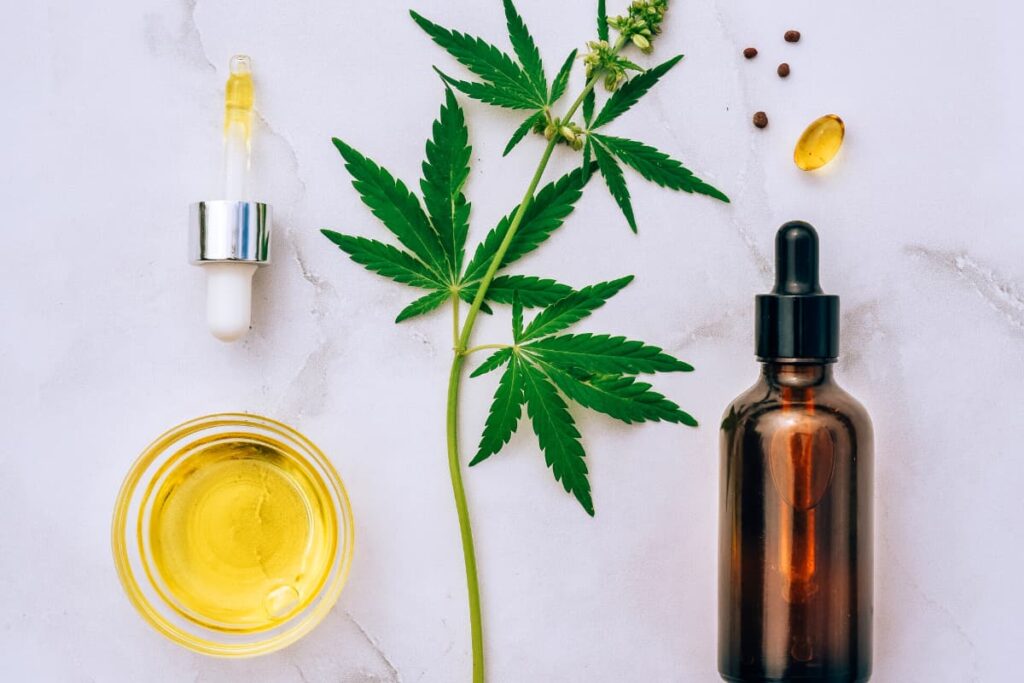Introduction
Menopause. It’s a word that can strike fear in the hearts of many women. Hot flashes, night sweats, mood swings, vaginal dryness – these are just some of the unpleasant symptoms that can accompany this natural life transition. While traditional treatments like hormone replacement therapy (HRT) are available, many women are looking for natural ways to manage their menopause symptoms.
This is where CBD (cannabidiol) enters the scene. Derived from the cannabis plant, CBD has gained popularity for its potential to alleviate a variety of health issues. But can it truly help with the rollercoaster ride of menopause? Let’s dive in and explore the evidence.
Understanding Menopause: What’s Happening Inside?
Menopause marks the end of a woman’s reproductive years. It typically occurs between the ages of 45 and 55, though it can happen earlier or later. During this time, a woman’s ovaries gradually stop producing eggs, and her estrogen and progesterone levels decline. This hormonal shift is the culprit behind the various symptoms women experience.
The Discomforting Symphony of Menopause Symptoms
- Hot Flashes and Night Sweats: These sudden bursts of heat and sweating are a hallmark symptom of menopause. They can be incredibly disruptive to sleep and daily activities.
- Sleep Disruptions: Fluctuations in hormones can make it difficult to fall asleep, stay asleep, and achieve quality rest.
- Mood Swings and Anxiety: The hormonal shifts can also affect your emotional state, leading to irritability, anxiety, and even depression.
- Vaginal Dryness: Decreased estrogen levels can cause the vaginal tissues to thin and become dry, leading to discomfort during intercourse and increased risk of urinary tract infections.
- Joint Pain and Stiffness: Many women report experiencing increased aches and pains in their joints during menopause.
How Can CBD Potentially Help?

While research on CBD and menopause is still evolving, preliminary studies suggest it may offer relief from some of the most common symptoms. Here’s a closer look:
- Reduced Hot Flashes and Night Sweats: Some studies suggest CBD may interact with the body’s endocannabinoid system, which plays a role in regulating temperature control. This could potentially help reduce the frequency and intensity of hot flashes.
- Improved Sleep Quality: CBD’s potential to reduce anxiety and promote relaxation may also contribute to better sleep for women experiencing sleep disturbances during menopause.
- Mood Regulation: Early research suggests CBD may interact with the brain’s serotonin receptors, which are involved in mood regulation. This could potentially help manage anxiety and mood swings associated with menopause.
- Reduced Pain: CBD’s anti-inflammatory properties might offer some relief from joint pain and stiffness commonly experienced during menopause.
- Vaginal Health: Topical CBD creams or suppositories are being explored for their potential to improve blood flow to the vaginal tissues, which might help alleviate dryness and discomfort.
Also Read- Beyond Pain Relief: How CBD Can Address the Physical and Emotional Stress of Surgery
Important Considerations Before Trying CBD for Menopause:
- Talk to Your Doctor: While CBD is generally considered safe, it’s crucial to consult with your doctor before starting any new supplement. They can advise you on potential interactions with medications you’re already taking and ensure CBD is a safe option for you.
- Research Products: The CBD market is booming, and quality can vary significantly. Look for reputable brands that offer third-party lab testing to ensure the potency and purity of their products.
- Start Low, Go Slow: There’s no one-size-fits-all approach to CBD. Begin with a low dose and gradually increase based on your individual needs and how your body reacts.
- Different Forms of CBD: CBD comes in various forms like oils, capsules, edibles, topicals, and suppositories. Depending on the symptom you’re targeting, one form might be more effective than another. Discuss options with your doctor or a knowledgeable CBD retailer.
Remember:
- Research on CBD and menopause is ongoing. While early studies show promise, more conclusive evidence is needed.
- CBD is not a cure-all. It may not work for everyone, and it might need to be combined with other lifestyle changes or treatments to manage menopause symptoms effectively.
Living Well During Menopause:
CBD can be a potential tool in your menopause management toolbox, but there are other things you can do to support your well-being during this transition:
- Maintain a Healthy Lifestyle: Eating a balanced diet, exercising regularly, and getting enough sleep all contribute to overall health and can help alleviate some menopause symptoms.
- Stress Management: Techniques like yoga, meditation, and deep breathing can help manage stress and anxiety, which can worsen menopause symptoms.
- Mind-Body Practices: Consider exploring practices like acupuncture or massage therapy, which may offer some relief from pain and discomfort.
Embrace the Journey
Menopause is a natural part of life, and it doesn’t have to be a time of dread. By exploring natural remedies like CBD, making healthy lifestyle changes, and prioritizing self-care, you can navigate this transition with grace and find ways to feel your best. Here are some additional tips:
- Connect with Others: Talk to friends, family, or join a support group for women going through menopause. Sharing experiences and learning from others can be incredibly empowering.
- Stay Informed: There are many resources available online and in libraries about menopause. Educate yourself about the changes your body is going through, and explore different management options.
- Celebrate Your Strength: Menopause signifies the end of your reproductive years, but it also marks a new chapter in your life. Embrace the freedom and wisdom that comes with this transition, and celebrate your strength and resilience.
The Final Note
CBD holds promise as a natural approach to managing some menopause symptoms. However, it’s important to approach it with realistic expectations and a commitment to overall well-being. Remember, you’re not alone in this journey. With open communication with your doctor, a healthy lifestyle, and a positive mindset, you can create a fulfilling and empowered experience during menopause.
